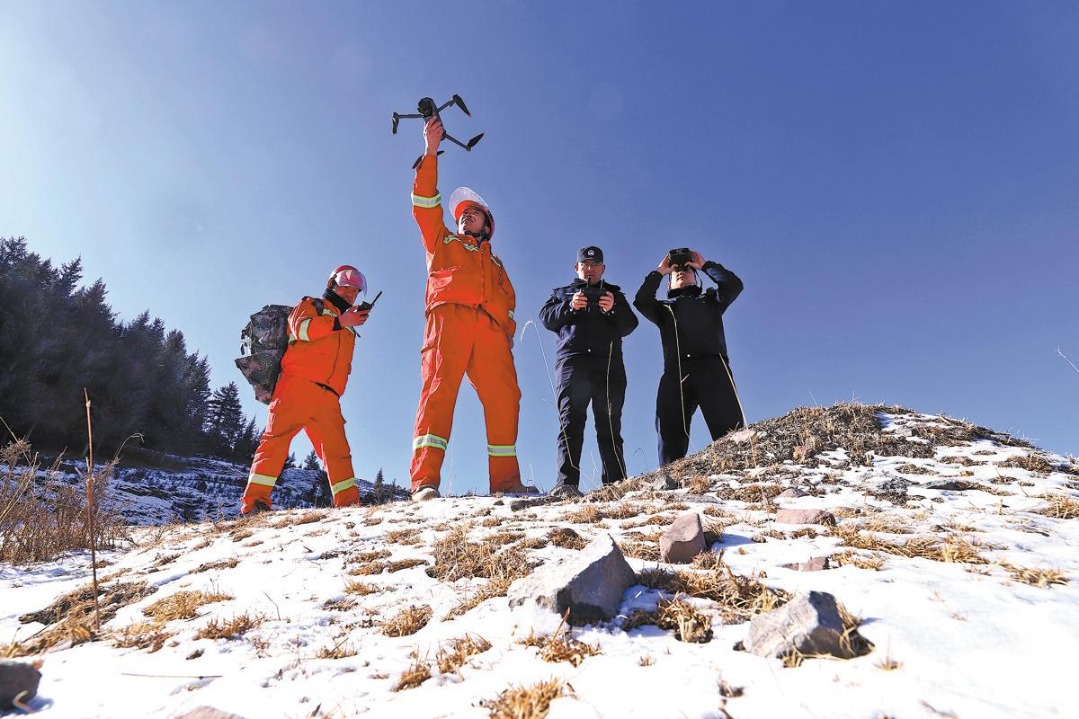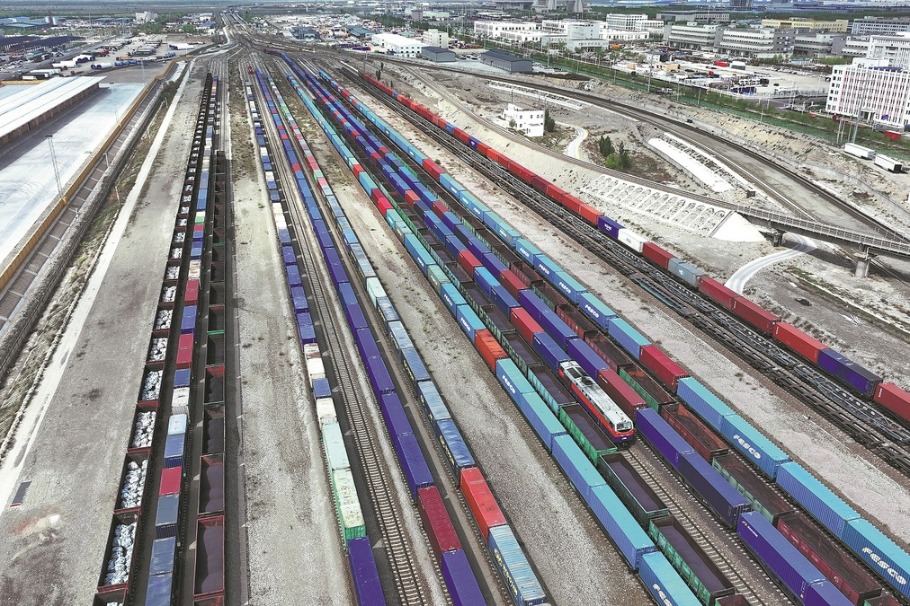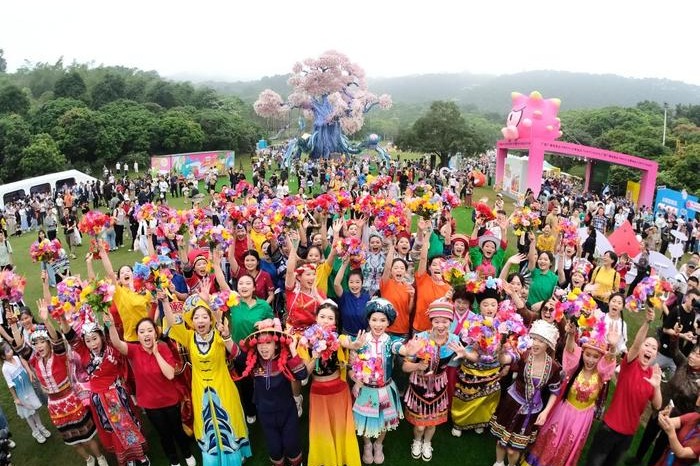Maternity nurses in demand overseas

Caring for mothers and newborn babies in foreign countries offers some women rare chance to travel
Men Anping, a Beijing-based domestic maternity nurse who cares for mothers and newborn babies, has just agreed another job offer to go to Australia for two months.
In May, she stayed in Sydney for a month to care for a Chinese woman and her newborn baby.
For her new contract in January, she will take care of another Chinese woman giving birth in Sydney. This time, the woman intends to spend two months at home rather than one month, which is usual for Chinese women after giving birth.
| Maternity nurses attend a training session in Ji'an, Jiangxi province, in May last year, on how to cook nutritious meals for women who just give birth to a baby. Li Fusun / For China Daily |
| Maternity nurses participate in a baby care competition in Qinyang, Henan province, in April last year. Li Yafeng / For China Daily |
"Such trips to a foreign country are beyond my expectations. I was born and raised in a rural area, and didn't anticipate that I could leave the countryside and go to Beijing. Now I am going farther, even abroad," said Men, a 48-year-old from Liaoning province in Northeast China.
Nowadays, with the number of Chinese women giving birth overseas rising, many domestic maternity nurses, like Men, are traveling far afield.
The demand for such services has grown considerably over the past five years.
The domestic services company Youfumama, which first began providing outbound services in 2013, said the number of maternity nurses that went overseas that year was three, and the number has risen to 20 so far this year. Shanghai Xinmu International Domestic Service said the demand for domestic helpers around the world has surged by around 30 percent each year in the past five years.
Clients from Beijing and Shanghai account for more than 80 percent of the total and many of those who invite maternity nurses to undertake overseas assignments are those who plan to give birth to their children abroad, said Man Jinglun, operations manager of Youfumama, which is based in Beijing and has businesses in seven Chinese cities.
Man said the pay for an overseas assignment is at least 20 percent higher than an equivalent assignment at home, for which the pay is no lower than 10,000 ($1,500) in major cities.
"The pay is the same no matter where their destination is and the client has to pay for the domestic helper's round trip air tickets and food," said Man. Given the nature of the work, they stay in the clients' homes.
The agencies give instructions to the domestic maternity nurses about dos and don'ts, the weather and the time difference before departure.
"We will tell them how to deal with unexpected situations. For example, if their purse is stolen. We also advise them to start an international roaming service for their cellphones so that we can get in touch with them," Man said.
Most maternity nurses are happy to accept the opportunity to work abroad.
"First of all, the experience is an advantage. Each ayi has a brief introduction of themselves on our company's website. Such experience means they are likely to be chosen by more clients and get a higher rank and pay from their companies," Man said.
Moreover, it may be an once-in-a-lifetime chance for the domestic helpers to go abroad, as most are from impoverished rural backgrounds.

"For many of them, it may be their first time taking an airplane. In most cases the clients will give them a couple of extra days to travel around at the destination after they finish the work, which is four weeks in most cases," he said.
But still, about 1 in 5 will say no to such an opportunity for reasons such as the concerns that they will not adapt to the local culture.
However, this was not the case for Men, one of her agency's star maternity nurses, she earns 15,800 yuan for each monthlong service.
Men said she applied for a passport when she returned to her home province during the Spring Festival in January. "Some younger colleagues had already obtained such opportunities to go abroad, I wanted to try it as well," she said.
Most of the domestic maternity nurses Youfumama recommends to clients are in their 30s, said Man.
"Although English is not a must, we hope they will be flexible when encountering emergencies. For example, they know how to use a translation app on a smartphone and how to express themselves with body language," he said.
Men said it was her first time taking an airplane. "I was very excited and nervous. I arrived at the airport three hours before the boarding time and was told that the flight was not ready to check in," she said.
The job went smoothly and, after completing the month of work, she had two days to travel around by herself. Men spent one day joining a Chinese tour, including visiting the Sydney Opera House and enjoying a dinner on a cruise around the Sydney Harbor Bridge, and the other day visiting the zoo to see koalas and kangaroos.
The main challenge for maternity nurses overseas is that they don't have the same food ingredients as those in China.
"In China, we traditionally stew soup with crucian carp for new moms, as it ensure the women have enough breast milk for the baby. But such fish is nowhere to be found in Western countries," said Hua Hongmei, a 48-year-old maternity nurse from rural Huai'an, Jiangsu province.
"I encourage my overseas clients to ensure they have some traditional Chinese medicine ingredients available for after they give birth," said Hua, who has been to Australia and the United States to care for mothers and their newborns.
Visa problem
Domestic services agencies said they usually suggest their staff obtain tourist visas for jobs overseas as their work contracts are short term.
"Although some of our ayi are from the Hong Kong Special Administrative Region and the island of Taiwan, and it is easier for them to get a visa to the United States," said Iris Yang, a customer services manager at Shanghai Xinmu International Domestic Service.
Once they obtain a visa, some maternity nurses try to make the best use of it by working sequential contracts for different families in different US cities or working in local postpartum care centers until their visa expires.
However, some companies said they don't covet the overseas demand for maternity nurses because it can be hard for their staff to get a visa. One of these is Domo, an agency for domestic workers based in Shanghai.
"It's usually easier for an ayi, who is a local Shanghainese, to get a visa but she usually asks for a higher pay and it's hard for the ayi and the client to reach an agreement," said a supervisor at Domo who only gave her surname as Luo.
zhouwenting@chinadaily.com.cn
(China Daily 10/03/2017 page8)
- Visitors can now tap international cards across Beijing subway
- Lavender tourism festival promotes development in Xinjiang
- China activates emergency response to flooding in Zhejiang
- Great Wall museum opens in North China
- Rare species return to Qilian Mountains
- Participation of public key in sustainable protection








































